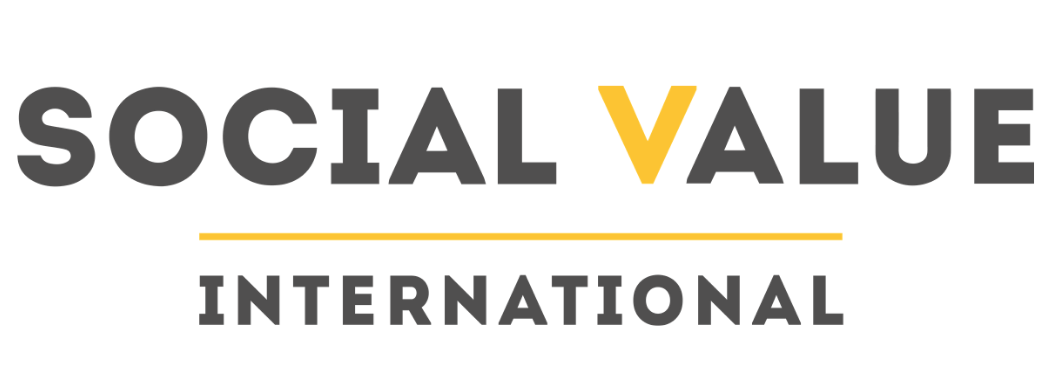Welcome, Social Value India
We received exciting news this month from the India CSR Summit, where Anand Chaturvedi, Sneha Lakhotia and Neha Agarwal announced the relaunch of Social Value India, our affiliate network in the world’s most populous country.
Social Value India is one of our 29 affiliate networks, and its relaunch took place at a time of significant growth for the social value movement worldwide – expect for more announcements of this type.
In the meantime, we invite you to read the following interview in which the three co-founders explain why it is so important to build a social value network in India now and what their priorities are.
And if you’d like to join, or learn more about, Social Value India, email: help@socialvalueindia.org
Why build a network of social value practitioners in India now?
After the mandate by the government of India on Corporate Social Responsibility in 2015 [which requires companies of a certain turnover and profitability to spend 2% of their net profit on CSR], the law is now well-established and business entities have a good hold on processes to execute their development initiatives.
One area that still needs attention is the crucial aspect of impact measurement and management. Social Value and methodologies like SROI can be a major differentiator in evaluating NGO interventions.
By building a network, we can share knowledge and resources, collaborate on projects, and amplify impact. Our network can help to raise the profile of the social sector in India. It can also build trust and collaboration between the social sector, businesses, and governments.
What is the pitch you’re making to prospective members?
Once we start enrolling members officially from Jan 2024, we hope to build a community of like-minded individuals, nonprofits and for-profit organizations who are also passionate about driving positive change.
This can provide members with support, motivation, and inspiration, and can facilitate collaboration and networking among members. We can help members learn from each other, share ideas, and work together to achieve their goals. With this platform, we can help to raise awareness of important issues and inspire others to take action and create success stories.
For example, one big gap we have noticed in many social change initiatives is limited involvement of stakeholders, who are the starting point. Someone with resources takes a decision on what will help the needy [without consulting them]. This is a problem. Understanding and embracing the eight principles of Social Value and making them a value within organizations can be a great beginning.
To that end, our L&D resources can provide much needed capacity building and rapidly bring better utilization of resources.
Are there developments that illustrate the potential impact of this network?
A Social Stock Exchange is coming in India. This could be a game changer both in spreading awareness of the concept of SROI and the need to get an SROI done.
What are your top priorities for Social Value India in the first year?
Our first goal is to drive awareness and we aim to achieve this by driving membership across various users – from students to NPOs to corporate sponsors. Once we have some momentum going, we will schedule webinars and trainings to introduce the concept of Social Value. Finally, we have set a goal of undertaking four to six SROI studies in our first year.
What sectors offer the greatest potential for applying social value methodology?
The potential exists in both the development sector and private sector sponsoring the former under the CSR law. While we do not have direct access to the public sector so far, we do have some good relations in the fast developing Social Stock Exchange ecosystem where we hope to inject the Social Value narrative and our goal is to seek SROI as a preferred methodology of impact measurement for entities which raise funds on the exchange.
What trends contribute to the growing interest in social value thinking?
Increased awareness of social and environmental challenges, the rise of the social sector, government support for social value, the creation of the Social Stock exchange, and growing demand from investors and consumers.
What’s the message about Social Value India that you want to share with the public at large?
From committing to support the development sector through their time and money, it is now more urgent than ever to measure and manage impact in order to bring real, sustainable positive change for the people whose lives we wish to improve.
What long term impact do you hope to have?
Social Value India will be the pioneering entity in developing the Social Value narrative in the country. It will be the preferred go-to entity for consultation and advice for programs of all sizes seeking to ensure efficiency and effectiveness in achieving the goals of change.
Why did you get involved in the social value movement initially?
Anand: I set up the Avasar Foundation in 2012 and it has become a medium sized program implementation agency in the country. One of the challenges I have faced is the absence of credible methodology for documenting of impact other than financial metrics. Avasar is the very first entity in the country to be registered on the Social Stock Exchange and one requirement is to conduct an impact audit. This requires a methodology to follow from the beginning and this need has led me to the world of Social Value. And not only I but my peer network of NPOs have frequently conversed about this.
Neha: I am a Chartered Accountant who has worked with PwC and Deloitte, completed a Duke University program on impact measurement and management, and provided consulting in the corporate and development sector. One area of focus has been on assisting non-profits, corporate and foundations in strategizing their CSR spends, curating a fundraising strategy, program management, impact reporting, etc. I am closely watching the Social Stock Exchange in India and hope to actively help entities get listed and conduct their social impact audits.

